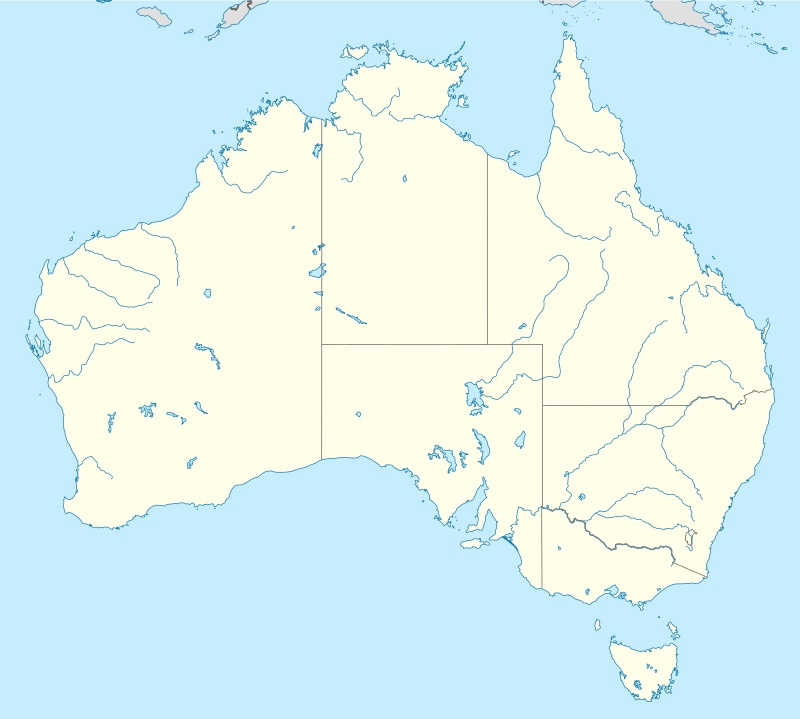Cape Melville
Cape Melville is a headland on the eastern coast of the Cape York Peninsula in Australia. To its west lies Princess Charlotte Bay. It is part of the Cape Melville National Park.
| Cape Melville | |
|---|---|
Beach at Cape Melville | |
 Location in Australia | |
| Location | Cape York Peninsula, Australia |
| Coordinates | 14°10′12″S 144°31′24″E |
| Offshore water bodies | Coral Sea |
Pipon Island is about six km north of the cape and Hales Island about two km east, both part of the Great Barrier Reef Marine Park. King Island lies several kilometres to the north west of the cape. The highest peak on the cape is Abbey Peak, which named in 1901 by Commander Munro. R.N., while aboard HMS Dart.[1]
The cape consists of granite outcrops which formed 250 million years ago.[2]
Unique ecosystem
The headland has been described as a "lost world".[3] Several animal species have existed in an isolated section of rainforest for millions of years.[3] A field of granite boulders has prevented bushfires from affecting the area and kept moisture in.[3][4]
In March 2013, a team of scientists and filmmakers joined the ranks of the few human visitors to the misty rain forest atop the Melville Range, a small mountain range on Cape Melville, part of northeastern Australia's Cape York Peninsula.[5]
The fauna and flora found near Cape Melville is diverse and includes several endemic species, including the Foxtail Palm[2] the Cape Melville leaf-tailed gecko,[6] the Cape Melville shade skink and the Blotched boulder-frog.[7]
See also
- Protected areas in Queensland
- Cape Melville affair
References
- "NOMENCLATURE OF QUEENSLAND". The Courier-Mail. Brisbane: National Library of Australia. 30 September 1935. p. 10. Retrieved 5 November 2014.
- "Cape Melville National Park: Nature, culture and history". Department of National Parks, Recreation, Sport and Racing. 10 October 2013. Retrieved 26 October 2013.
- Zoe Mintz (28 October 2013). "'Lost World' In Australia Uncovers New Species On Cape Melville". International Business Times. Retrieved 3 August 2014.
- "New species found in remote rainforest at Cape Melville range". news.com.au. News Limited. 28 October 2013. Retrieved 3 August 2014.
- Christine Dell'Amore, National Geographic, October 25, 2013l
- Hoskin, Conrad J.; Couper, Patrick (1 October 2013). "A spectacular new leaf-tailed gecko (Carphodactylidae: Saltuarius) from the Melville Range, north-east Australia". Zootaxa. 3717 (4): 543. doi:10.11646/zootaxa.3717.4.6.
- (28 October 2013). Leaf-tailed gecko, golden-coloured skink and boulder-dwelling frog: New species found in Australia's lost world . The Independent. Retrieved 3 August 2014.